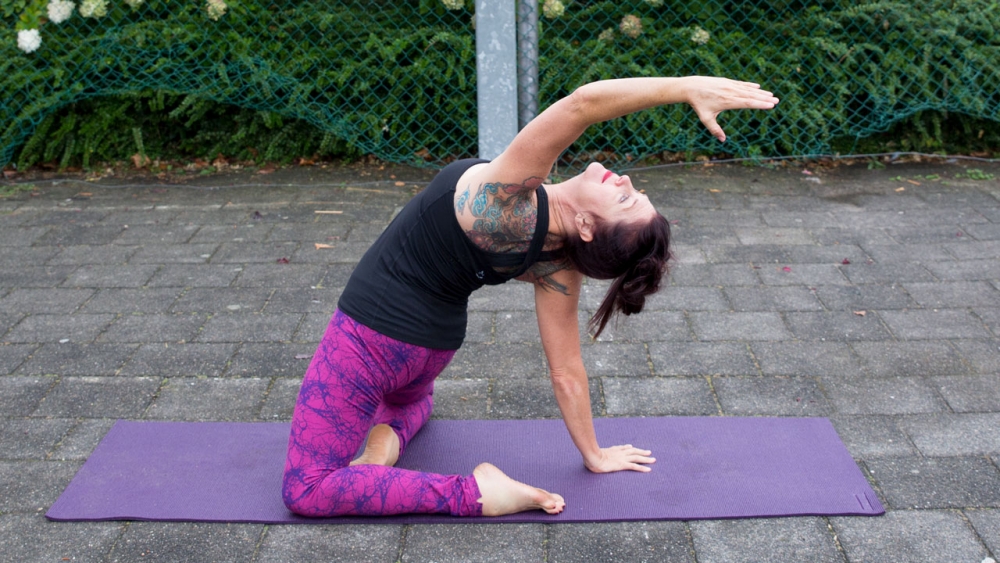In this article we look at some of the components of physical health and how we can support our health by promoting balance.
What affects our health?
Our body is an intricate and well-designed miracle of nature. Much of the detailed workings of our body is still theory and science is discovering new things every day. This always amazes me as it shows that we might never know everything there is to know about our bodies. The best we can do for our body and mind is to respect them, care for them and to always aim for balance. When there’s an imbalance we start to experience disturbances in the health of our body and mind.
For example, an imbalance in our thyroid gland can cause us to have fluctuating energy levels, most commonly low energy levels. This can have a knock-on effect, affecting our mood and health.
The irony here is that a perfect balance can never be attained. When you think you’ve found it, something happens to tip the scale. It’s the action of the process that’s important.. not the end result.
The irony is that perfect balance can never be attained. When you think you’ve found it, something happens to tip the scale. It’s the action of the process that’s important.. not the end result.
Defining health
So what do we actually mean by ‘health’? The World Health Organization’s definition of health is:
“Health is a state of complete physical, mental and social well-being and not merely the absence of disease or infirmity.”
This definition shows what a large topic this really is, and one that’s too big to address in one article. So let’s focus on the aspects of our physical well-being, on what it is that makes us feel physically healthy and what we can do to support it.
Feeling healthy
I feel physically healthy and well when I am not suffering from illness and I have enough energy to do the things I need to do every day. I think that this pretty much goes for most people right? But what makes us able to fight off illness and what affects our energy levels?

Our immune system – protecting your body against illness
Our immune system is our body’s defense against infection and disease. It builds immunity to avoid biological invasions and disease by resisting harmful microorganisms and viruses. Our immune system works across many different systems in our body and relies heavily on our circulatory, lymphatic, endocrine and nervous systems to function optimally and efficiently. So in order to support our immunity we need to support our entire body!
How do we do that? By promoting balance in our life and body. Eat well, exercise, work on our work-life balance, develop stress management skills and promote a healthy mind and mental attitude.
Supporting immunity with yoga.
When we practise yoga we develop a sense of body and mind awareness or mindfulness. We begin to develop a deeper sense of our body, actually feeling tightness or restrictions and imbalances and working on them actively. This type of body work often brings to light behavioral and mental attitudes that also affect our wellbeing. Through the practice of yoga one can develop strength, flexibility and balance both on and off the mat – which is good news for your health!
What affects our energy levels?
The essence of all movement, action and life is simply a shifting of energy. Every living thing needs energy in one form or another in order to move, repair, grow, reproduce and live! We produce energy in our cells in a magical series of processes, but essentially our energy source is from ATP – a molecular chemical chain.
Essential ingredients for energy production
- Nutrition: The first essential ingredient to the production of energy is nutrition. What, of course could be more obvious? If you don’t eat, you won’t have enough energy for your body to function! If you want to understand this process on a deeper level read “the mechanics of energy“.
- Metabolism: If we have adequate nutrition and are still feeling low in energy, what else can we look at? Another important aspect is our metabolism. How well and efficiently are we processing our food? How fast are our cells able to produce our energy source? This is known as our metabolic rate and improving our metabolic rate will improve our energy levels.
What influences our metabolism and energy levels?
- Hormones – Dipping levels of key hormones like oestrogen and testosterone can slow metabolism down. So nurturing and supporting your endocrine system is important in ensuring a healthy metabolism.
- Stress – when our body is under stress and our stress response is triggered, several things happen that can negatively affect our metabolism and energy. Our body pays less attention to key functions like our digestive process – meaning we may absorb fewer nutrients, and we release a hormone called cortisol. Cortisol can cause a hike in our blood sugar levels – increasing metabolism for our fight or flight mode. While it initially speeds up our metabolism prolonged exposure can lead to muscle wasting, fatigue and it suppresses our immune system. Our stress response is unconscious and even anxious thoughts can stimulate it. So we need to make sure that the opposing, balancing response ‘rest and digest’ or ‘relaxation’ is actively stimulated on a regular basis.
- Rest – Lack of sleep can have an effect on our metabolism and energy. When we don’t have enough sleep our body has to work harder and metabolic demand increases. If we don’t get enough rest, this demand can cause an overall slowing down of our metabolism. Lack of sleep can also lead to health issues like high blood pressure, diabetes, heart disease and depression.
- Exercise – When we exercise we actively stimulate our metabolism. If we increase the demand in a controlled and healthy way like exercise (and not chronic stress!) our cells become more accustomed to working at a higher level. Supporting your exercise with a healthy diet, hydration and a positive attitude will make sure that you are challenging your body in a safe and productive way.
- Mental attitude/health – We all have suffered from low moods and many of us from depression. Our mood directly influences our energy levels too and should not go unnoticed. Things like yoga and meditation can really help you manage and lift your mood.
- Illness – We all know it but when we are ill, our energy levels go right down. This is because our body is working hard trying to heal us. When you are ill the best thing you can do to support your body is rest, get the right medication (if needed) …and practise acceptance. Acceptance of your low energy level is the key here!
Yoga to take care of your health
To conclude, the key to maintaining and promoting your health is to support your body. Whether with active classes to stimulate your systems, restorative classes to support your body when you are feeling under the weather or Yin classes to stimulate your energetic meridians, yoga can offer holistic and wholesome support.
Enjoy a fully-rounded yoga practice in this 3-week program, with classes to help you strengthen, stretch and relax. Available as part of your EkhartYoga membership.


